Steph Post's Blog, page 30
January 15, 2016
Review of Ben Tanzer's Sex and Death
My review of Ben Tanzer's brilliant story collection, Sex and Death, is live now on Small Press Book Review. Take a look!
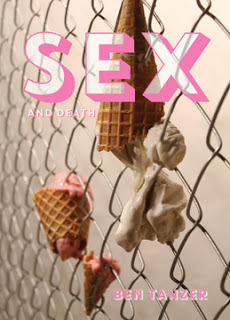

Published on January 15, 2016 09:13
December 19, 2015
Rift- Part Two- An Interview with Robert Vaughan
Yesterday I brought you an interview with Kathy Fish, one half of the writing duo which recently released the knockout flash fiction collection
Rift
. Today, I give you part two: my conversation with Robert Vaughan. Here we're talking poetic tendencies, structure as a vessel and what's Not on the page. In other words, a craft-heavy interview: my favorite kind. Enjoy!
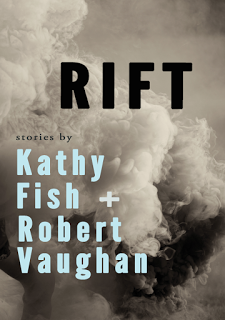
Steph Post: Rift contains stories by both yourself and author Kathy Fish. The stories alternate, but are not author-attributed throughout the text. Would you consider Rift to be more of a collaboration or a dual-collection?
Robert Vaughan: The stylistic choices you reference, such as stories alternating, and the lack of author-attribution on each story page, were collaborative choices made by Kathy and me, as well as our publisher, Bud Smith at Unknown Press. The individual stories were all either Kathy’s or my own. In other words, we didn’t co-author stories, but we did place careful editing on each other’s work. I think I’d describe this experience as a collaboration encompassed in a dual-collection.
SP: More so in your work than in Kathy's, I felt the poetry genre creeping forth. Pieces such as "If You Have to Have an Isim" and "Keep It Curt" definitely read more like poetry than prose to me. Genre is always a tricky issue and something I am always curious about. Is there much of a stark line between flash fiction and poetry? Can the genres be interlinked or interchangeable?
RV: I think flash fiction and prose poetry are unlikely sisters. These comparisons have been flushed fully in the fantastic Rose Metal Press Guides (both genres). I love to blur the boundaries of any genre, color way outside the lines, and in first drafts barely consider what it might be. I do think, therefore, it’s possible to link or exchange one for the other. Certainly there are more current fiction writers that “borrow” from the world of poetry (techniques) than ever before. And organically I have a deep affinity with hybrid writing, somewhere among the shadows, bridging worlds, tossing out rules.
SP: In your story "The Rooms We Rented," your emphasis on experimenting with structure is clearly evident. In this case, you break the story up by place and perspective, though in other cases you create fragmented structure in other ways. Does the structure of a piece ever overshadow its story? Can the structure determine or even be the story?
RV: These are profound, deep questions! I love that you mentioned experimentation, a device I yearn to employ (with nods to mentors like Gertrude Stein, Virginia Woolf, Tomas Transtromer, etc.) I think of structure as the best container in which a story, or words, can come forth, and be held. In this way it informs the reader, and in some cases, it might be more of the story than I am aware. Often this is more addressed in re-writes and edits than a first draft.
SP: I've always found flash fiction a delight to teach. For students, its size is manageable and therefor gives them the time and space to close read and analyze. It also does a great job of not scaring student-readers away (which in high school seems to be most of the battle). In your experience, is flash fiction more accessible to readers than, say, a traditional length short story?
RV: For the reasons you mention, I also love to use flash fiction as teaching tools and reading examples. I think more traditional short story form has the same potential (e.g., stories like James Joyce’s “The Dead” or Janet Frame’s “The Lagoon”). One of the driving forces of flash fiction is that delicate use of ‘white space,’ or what is left off the page. When used effectively, this tool gives a reader of any age more permission, use of their imagination, and hopefully a connection to the story.
SP: Rift is broken up into sections titled "Fault," "Tremor," "Breach" and "Cataclysm" which gives meaning to the title of the collection. Where did the geology motif come from? Was this something you and Kathy came up with together?
RV: The title, Rift, came to us early in the writing stages. Once Kathy and I exchanged our first manuscripts in Denver (July, 2015) we chatted about the possibility of sections. Originally, we toyed with four seasons, and keeping in mind the RIFT title, a word from nature or how a season might be indicated by that. Then we noticed that our pieces had different pacing, or tempo, and how there was an overall progression threaded through- so later on (September?) we used the Thesaurus and went to work! As a final touch, Kathy then had the terrific idea (she referenced Shipping News by Annie Proulx in which each chapter had a different knot pictured and the definition of each knot) to include the actual definitions of our four section’s (Fault, Tremor, Breach and Cataclysm) title page.
SP: And finally, as always, I'm looking for recommendations and to pass on the love. So... who and what should I be reading right now?
RV: I’m currently reading Why This World: A Biography of Clarice Lispector by Benjamin Moser. Just finished People Like You by Margaret Malone (highly recommended short stories). Enjoyed The Best Small Fictions 2015 by Tara Masih and Robert Owen Butler (editors). I’m a member of Goodreads, and always try to review every book I read. Also, I’ll post a year-end reading list at my blog: www.robert-vaughan.com, which I’ve done since 2009. Thanks for the very deep questions, and your lovely support of RIFT, and indie authors, Stephanie!
Thank you, Robert! And now, dear readers, go out and get your copy of Rift today. As always: read, review, recommend, repeat.....
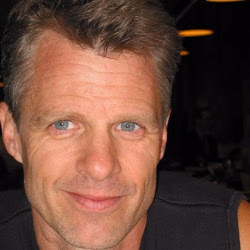

Steph Post: Rift contains stories by both yourself and author Kathy Fish. The stories alternate, but are not author-attributed throughout the text. Would you consider Rift to be more of a collaboration or a dual-collection?
Robert Vaughan: The stylistic choices you reference, such as stories alternating, and the lack of author-attribution on each story page, were collaborative choices made by Kathy and me, as well as our publisher, Bud Smith at Unknown Press. The individual stories were all either Kathy’s or my own. In other words, we didn’t co-author stories, but we did place careful editing on each other’s work. I think I’d describe this experience as a collaboration encompassed in a dual-collection.
SP: More so in your work than in Kathy's, I felt the poetry genre creeping forth. Pieces such as "If You Have to Have an Isim" and "Keep It Curt" definitely read more like poetry than prose to me. Genre is always a tricky issue and something I am always curious about. Is there much of a stark line between flash fiction and poetry? Can the genres be interlinked or interchangeable?
RV: I think flash fiction and prose poetry are unlikely sisters. These comparisons have been flushed fully in the fantastic Rose Metal Press Guides (both genres). I love to blur the boundaries of any genre, color way outside the lines, and in first drafts barely consider what it might be. I do think, therefore, it’s possible to link or exchange one for the other. Certainly there are more current fiction writers that “borrow” from the world of poetry (techniques) than ever before. And organically I have a deep affinity with hybrid writing, somewhere among the shadows, bridging worlds, tossing out rules.
SP: In your story "The Rooms We Rented," your emphasis on experimenting with structure is clearly evident. In this case, you break the story up by place and perspective, though in other cases you create fragmented structure in other ways. Does the structure of a piece ever overshadow its story? Can the structure determine or even be the story?
RV: These are profound, deep questions! I love that you mentioned experimentation, a device I yearn to employ (with nods to mentors like Gertrude Stein, Virginia Woolf, Tomas Transtromer, etc.) I think of structure as the best container in which a story, or words, can come forth, and be held. In this way it informs the reader, and in some cases, it might be more of the story than I am aware. Often this is more addressed in re-writes and edits than a first draft.
SP: I've always found flash fiction a delight to teach. For students, its size is manageable and therefor gives them the time and space to close read and analyze. It also does a great job of not scaring student-readers away (which in high school seems to be most of the battle). In your experience, is flash fiction more accessible to readers than, say, a traditional length short story?
RV: For the reasons you mention, I also love to use flash fiction as teaching tools and reading examples. I think more traditional short story form has the same potential (e.g., stories like James Joyce’s “The Dead” or Janet Frame’s “The Lagoon”). One of the driving forces of flash fiction is that delicate use of ‘white space,’ or what is left off the page. When used effectively, this tool gives a reader of any age more permission, use of their imagination, and hopefully a connection to the story.
SP: Rift is broken up into sections titled "Fault," "Tremor," "Breach" and "Cataclysm" which gives meaning to the title of the collection. Where did the geology motif come from? Was this something you and Kathy came up with together?
RV: The title, Rift, came to us early in the writing stages. Once Kathy and I exchanged our first manuscripts in Denver (July, 2015) we chatted about the possibility of sections. Originally, we toyed with four seasons, and keeping in mind the RIFT title, a word from nature or how a season might be indicated by that. Then we noticed that our pieces had different pacing, or tempo, and how there was an overall progression threaded through- so later on (September?) we used the Thesaurus and went to work! As a final touch, Kathy then had the terrific idea (she referenced Shipping News by Annie Proulx in which each chapter had a different knot pictured and the definition of each knot) to include the actual definitions of our four section’s (Fault, Tremor, Breach and Cataclysm) title page.
SP: And finally, as always, I'm looking for recommendations and to pass on the love. So... who and what should I be reading right now?
RV: I’m currently reading Why This World: A Biography of Clarice Lispector by Benjamin Moser. Just finished People Like You by Margaret Malone (highly recommended short stories). Enjoyed The Best Small Fictions 2015 by Tara Masih and Robert Owen Butler (editors). I’m a member of Goodreads, and always try to review every book I read. Also, I’ll post a year-end reading list at my blog: www.robert-vaughan.com, which I’ve done since 2009. Thanks for the very deep questions, and your lovely support of RIFT, and indie authors, Stephanie!
Thank you, Robert! And now, dear readers, go out and get your copy of Rift today. As always: read, review, recommend, repeat.....

Published on December 19, 2015 07:41
December 18, 2015
Rift- Part One- an Interview with Kathy Fish
This past year, I've seen Kathy Fish's name continually pop up whenever and wherever flash fiction is being discussed. Naturally, I was both curious and excited when Fish's story collection,
Rift
, co-authored with Robert Vaughan, hit the shelves this past month from Unknown Press. I had every reason to expect the best in contemporary flash and, let me tell you, Rift does not disappoint. At times it is poignantly quiet; at times it reaches into your gut and twists. The stories within are a reminder of the excellence in craft that flash writers are achieving these days, but they are also powerful jolts of characters and moments, images and memories, the essence of storytelling distilled down into a dream-like ether that connects with you directly from the page. These pieces will strike out at you, lightening quick, and then leave you sometimes dazed, sometimes warm, sometimes unsettled, as all good writing should do.
Rift is unique, above all, in its almost unnoticeable duality. There are two authors here, yes, two fiction power-houses at work, but the collection reads seamlessly. If there weren't two names on the cover, I don't think you'd ever realize that both Kathy and Robert are inhabiting the space within. Here, though, and given the chance to dig deeper, I wanted to give each their due. Today, I bring you a conversation with Kathy Fish. Tomorrow, Robert Vaughan. There's a lot to enjoy here and a lot to learn from. Read on and then go pick up Rift to see for yourself. (And then read tomorrow's interview and go buy a copy for a friend....)
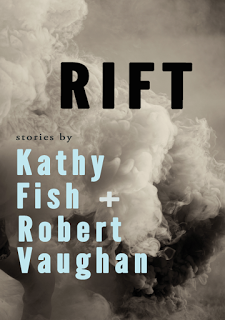
Steph Post: Rift is the first time I've read a dual short story collection where the stories weren't clearly separated by author. Although the table of contents pairs titles with authors and the order alternates throughout the book, often times it was easy to forget that I was reading a collection by two different peoples. Can you explain how this collection between you and Robert Vaughan came together? Was this was something the two of you collaborated on and then brought to Unknown Press or does Rift have a different origin? Why do you think yours and Vaughan's styles are so compatible?
Kathy Fish: I had been invited to join an online group called The Night Owl Café, which involved Robert, Bud Smith, Michael Gillian Maxwell and Meg Tuite. Meg wanted to take a break from the group to work on her novel. I was invited to take her place. I hadn’t been writing much at the time. After a few weeks of participation, Bud Smith came up with the idea of publishing a collaborative book of Robert's and my stories through Unknown Press. My initial response was, I’d love to do it, but I have hardly any new material! Bud’s response was, let’s see what the next few months in The Night Owl Café produce. So for a period of many months I was working intensively with Night Owl Café along with the great workshop I’ve been in for over a decade, Hot Pants, which is run by the amazing Kim Chinquee.
I’d known Robert as a small press author and flash fiction/poetry writer for some time prior to joining the workshop. I always admired his innovative, playful style and I think he liked my stories as well. The members of the workshop took turns giving weekly prompts. I think somehow through writing from the same prompts and giving each other feedback, and through the inspiration of reading everyone’s pieces, the work began to sort of organically meld together. I think our styles are compatible and complimentary at the same time. And I love that it’s difficult to parse out whose stories are whose in the book. To me, that makes it feel like a true collaboration, rather than just two separate collections thrown together.
SP: Even before I began Rift, I had heard of your reputation for being a flash fiction master. All of the stories in Rift are flash, but some are so short that they might be called micro-fiction. I'm thinking of a piece such as "Woe," which packs a hell of a punch in the span of a paragraph. How are you able to distill an entire story down into a space this small? Do you start with a moment and explore the story behind it and then go back to the moment? How does this work?
KF: Thank you, Steph. I really love writing both kinds of stories. The more traditional short shorts and the more experimental micro-fictions. I will say that the micros seem to come to me all at once, in a rush of sense and feeling and language. There is a sense of sound and rhythm as well. It’s difficult to explain, but yes, I do tend to begin with an image/moment and it flows from there. I think readers either love these or don’t, but I love writing them. I never sit down with the idea of writing a micro, they just seem to arrive spontaneously on the page and I am never tempted to expand on them.
SP: Many of your stories in this collection have a dream-like quality, as in "A Room With Many Small Beds" (and many others) or have characters imagining a wishful, alternate world, such as in "There is no Albuquerque." I felt that many of Vaughan's pieces also had this dream-world sense about them. Is this a theme that was meant to be part of the collection or does this more broadly reflect overall themes in your work?
KF: I think a good portion of my own stories have that dream-like quality to them. I think particularly when I’m writing from a child’s point of view or drawing on memory, or in the case of “There is No Albuquerque” there in a strangeness that’s enhanced with a sense of imagining or living in an alternate world. Robert’s playfulness with language lends his work a dream-like quality as well. It’s not something we set out to do, but I think those are consistent aspects of both Robert's and my writing. I feel like our cover has that feel to it as well and sets the reader up for a somewhat surreal, magical experience in the book as a whole.
SP: Most of the longer pieces in Rift (well, long for flash fiction) seem to be broken up into even smaller segments. Both you and Vaughan break your stories up in various ways, by numbered sections, by place, by choices. What is the purpose of breaking up the already short stories into even shorter ones?
KF: I love to write segmented flash. I like to think of it as creating a mosaic. This structure makes use of white space in a way that encourages the reader to engage with the work. These types of stories lack bridges and transitions and a clear-cut internal structure. The book begins with “A Room with Many Small Beds” which is a story told in short, sharp bursts of memory and sensation and feeling. I feel like this is a better representation sometimes of our remembered experience than a traditionally told story. For me, it gives the feeling of snapshots.
SP: This is more of a question about flash fiction in general, but since you are the master... in this genre do you think that language or structure takes precedence over the story, because you are operating in such limited constraints?
KF: I think in writing flash the challenge is to give the sense of a story, to leave the reader with the same feeling that comes from being told a story, but within very few words. This requires a bit of finagling and deftness. Yes, language and structure must do more of the heavy lifting.
Now. One may create a flash that follows all the rules of short fiction, that is, it has a definite beginning, middle, and end. It has an arc and a resolution. It is technically a story, yet somehow still falls flat. I think when this happens it’s because it’s not in fact a flash fiction but a truncated short story, a short story that was not fully fleshed out. It makes for a dissatisfying read. Opinions differ, but I believe that flash is not just a super condensed version of a short story. It is its own distinct form, like poetry.
In order to succeed, a flash must have emotional resonance and a sense of an arc, a sense of change, which can be subtle. So, it’s advantageous to experiment and innovate. A flash writer must do more with image, more with evocation, more with style and language and nuance. It’s actually quite hard to do well.
SP: Finally, out of all of the pieces in Rift, "No Time For Prairie Dog Town" is my favorite. It absolutely gutted me and I had to read it over several times. It's exactly the sort of story I'd like to teach in a fiction workshop. (I may have to do that sometime....) Do you have a favorite? Or a favorite theme or structure that you've written within this genre? Is there another flash fiction author that I should have on my radar?
KF: Oh I love hearing what readers’ favorite stories were! Thanks, Steph. That story means a lot to me. My brother died in March and right after that I experienced a sort of creative mania and was writing story after story. I’ve made a few sad road trips home like that and I suppose I’ll keep trying to capture that experience. Everything is so heightened, so bursting with meaning and feeling.
You ask such great questions! I guess my favorite story of the collection is my first one, “A Room with Many Small Beds.” It was the story that underwent the most revision and pulled in bits of writing I had done over many years actually. For instance, at one time, the fragment about the visit to the mental hospital was its own stand alone story. But I cut that to the bone and used it in this story. Though it’s primarily fiction, a lot is drawn from my childhood as well. My mother had actually driven us to our grandfather’s house and burned a dollar bill in front of him. I mean, I had to use that, right?
My favorite of Robert’s is actually the one that follows mine, “Galloping into the Future.” He uses the same fragmented structure and the story is so brilliant and alive and surprising. The final image is gorgeous.
Steph, there are SO many amazing writers publishing flash fiction right now. I think many would not call themselves primarily flash fiction writers. I’m just wild about Kendra Fortmeyer’s writing. She has a chapbook called “The Girl Who Could Only Say sex, drugs, and rock & roll” from Awst Press (I haven’t read it yet, but will) and Rosie Forrest is just a crazy good writer, too. She has just published a chapbook called “Ghost Box Evolution in Cadillac, Michigan” with Rose Metal Press and it’s terrific.
Many thanks to Kathy Fish for stopping by! Be sure to check out Robert Vaughan's interview, posting tomorrow, and, of course, pick up your copy of Rift. Cheers and happy reading!
Rift is unique, above all, in its almost unnoticeable duality. There are two authors here, yes, two fiction power-houses at work, but the collection reads seamlessly. If there weren't two names on the cover, I don't think you'd ever realize that both Kathy and Robert are inhabiting the space within. Here, though, and given the chance to dig deeper, I wanted to give each their due. Today, I bring you a conversation with Kathy Fish. Tomorrow, Robert Vaughan. There's a lot to enjoy here and a lot to learn from. Read on and then go pick up Rift to see for yourself. (And then read tomorrow's interview and go buy a copy for a friend....)

Steph Post: Rift is the first time I've read a dual short story collection where the stories weren't clearly separated by author. Although the table of contents pairs titles with authors and the order alternates throughout the book, often times it was easy to forget that I was reading a collection by two different peoples. Can you explain how this collection between you and Robert Vaughan came together? Was this was something the two of you collaborated on and then brought to Unknown Press or does Rift have a different origin? Why do you think yours and Vaughan's styles are so compatible?
Kathy Fish: I had been invited to join an online group called The Night Owl Café, which involved Robert, Bud Smith, Michael Gillian Maxwell and Meg Tuite. Meg wanted to take a break from the group to work on her novel. I was invited to take her place. I hadn’t been writing much at the time. After a few weeks of participation, Bud Smith came up with the idea of publishing a collaborative book of Robert's and my stories through Unknown Press. My initial response was, I’d love to do it, but I have hardly any new material! Bud’s response was, let’s see what the next few months in The Night Owl Café produce. So for a period of many months I was working intensively with Night Owl Café along with the great workshop I’ve been in for over a decade, Hot Pants, which is run by the amazing Kim Chinquee.
I’d known Robert as a small press author and flash fiction/poetry writer for some time prior to joining the workshop. I always admired his innovative, playful style and I think he liked my stories as well. The members of the workshop took turns giving weekly prompts. I think somehow through writing from the same prompts and giving each other feedback, and through the inspiration of reading everyone’s pieces, the work began to sort of organically meld together. I think our styles are compatible and complimentary at the same time. And I love that it’s difficult to parse out whose stories are whose in the book. To me, that makes it feel like a true collaboration, rather than just two separate collections thrown together.
SP: Even before I began Rift, I had heard of your reputation for being a flash fiction master. All of the stories in Rift are flash, but some are so short that they might be called micro-fiction. I'm thinking of a piece such as "Woe," which packs a hell of a punch in the span of a paragraph. How are you able to distill an entire story down into a space this small? Do you start with a moment and explore the story behind it and then go back to the moment? How does this work?
KF: Thank you, Steph. I really love writing both kinds of stories. The more traditional short shorts and the more experimental micro-fictions. I will say that the micros seem to come to me all at once, in a rush of sense and feeling and language. There is a sense of sound and rhythm as well. It’s difficult to explain, but yes, I do tend to begin with an image/moment and it flows from there. I think readers either love these or don’t, but I love writing them. I never sit down with the idea of writing a micro, they just seem to arrive spontaneously on the page and I am never tempted to expand on them.
SP: Many of your stories in this collection have a dream-like quality, as in "A Room With Many Small Beds" (and many others) or have characters imagining a wishful, alternate world, such as in "There is no Albuquerque." I felt that many of Vaughan's pieces also had this dream-world sense about them. Is this a theme that was meant to be part of the collection or does this more broadly reflect overall themes in your work?
KF: I think a good portion of my own stories have that dream-like quality to them. I think particularly when I’m writing from a child’s point of view or drawing on memory, or in the case of “There is No Albuquerque” there in a strangeness that’s enhanced with a sense of imagining or living in an alternate world. Robert’s playfulness with language lends his work a dream-like quality as well. It’s not something we set out to do, but I think those are consistent aspects of both Robert's and my writing. I feel like our cover has that feel to it as well and sets the reader up for a somewhat surreal, magical experience in the book as a whole.
SP: Most of the longer pieces in Rift (well, long for flash fiction) seem to be broken up into even smaller segments. Both you and Vaughan break your stories up in various ways, by numbered sections, by place, by choices. What is the purpose of breaking up the already short stories into even shorter ones?
KF: I love to write segmented flash. I like to think of it as creating a mosaic. This structure makes use of white space in a way that encourages the reader to engage with the work. These types of stories lack bridges and transitions and a clear-cut internal structure. The book begins with “A Room with Many Small Beds” which is a story told in short, sharp bursts of memory and sensation and feeling. I feel like this is a better representation sometimes of our remembered experience than a traditionally told story. For me, it gives the feeling of snapshots.
SP: This is more of a question about flash fiction in general, but since you are the master... in this genre do you think that language or structure takes precedence over the story, because you are operating in such limited constraints?
KF: I think in writing flash the challenge is to give the sense of a story, to leave the reader with the same feeling that comes from being told a story, but within very few words. This requires a bit of finagling and deftness. Yes, language and structure must do more of the heavy lifting.
Now. One may create a flash that follows all the rules of short fiction, that is, it has a definite beginning, middle, and end. It has an arc and a resolution. It is technically a story, yet somehow still falls flat. I think when this happens it’s because it’s not in fact a flash fiction but a truncated short story, a short story that was not fully fleshed out. It makes for a dissatisfying read. Opinions differ, but I believe that flash is not just a super condensed version of a short story. It is its own distinct form, like poetry.
In order to succeed, a flash must have emotional resonance and a sense of an arc, a sense of change, which can be subtle. So, it’s advantageous to experiment and innovate. A flash writer must do more with image, more with evocation, more with style and language and nuance. It’s actually quite hard to do well.
SP: Finally, out of all of the pieces in Rift, "No Time For Prairie Dog Town" is my favorite. It absolutely gutted me and I had to read it over several times. It's exactly the sort of story I'd like to teach in a fiction workshop. (I may have to do that sometime....) Do you have a favorite? Or a favorite theme or structure that you've written within this genre? Is there another flash fiction author that I should have on my radar?
KF: Oh I love hearing what readers’ favorite stories were! Thanks, Steph. That story means a lot to me. My brother died in March and right after that I experienced a sort of creative mania and was writing story after story. I’ve made a few sad road trips home like that and I suppose I’ll keep trying to capture that experience. Everything is so heightened, so bursting with meaning and feeling.
You ask such great questions! I guess my favorite story of the collection is my first one, “A Room with Many Small Beds.” It was the story that underwent the most revision and pulled in bits of writing I had done over many years actually. For instance, at one time, the fragment about the visit to the mental hospital was its own stand alone story. But I cut that to the bone and used it in this story. Though it’s primarily fiction, a lot is drawn from my childhood as well. My mother had actually driven us to our grandfather’s house and burned a dollar bill in front of him. I mean, I had to use that, right?
My favorite of Robert’s is actually the one that follows mine, “Galloping into the Future.” He uses the same fragmented structure and the story is so brilliant and alive and surprising. The final image is gorgeous.
Steph, there are SO many amazing writers publishing flash fiction right now. I think many would not call themselves primarily flash fiction writers. I’m just wild about Kendra Fortmeyer’s writing. She has a chapbook called “The Girl Who Could Only Say sex, drugs, and rock & roll” from Awst Press (I haven’t read it yet, but will) and Rosie Forrest is just a crazy good writer, too. She has just published a chapbook called “Ghost Box Evolution in Cadillac, Michigan” with Rose Metal Press and it’s terrific.

Many thanks to Kathy Fish for stopping by! Be sure to check out Robert Vaughan's interview, posting tomorrow, and, of course, pick up your copy of Rift. Cheers and happy reading!
Published on December 18, 2015 07:52
December 8, 2015
Steph's Super Awesome 2015 End of the Year Book List of Amazingness!
Because there just aren't enough book lists out there... Here are some of the killer books that stole my heart this year (with a special 2016 bonus section as well!) Enjoy!
Released in 2015:
Moon Up, Past Full by Eric Shonkwiler
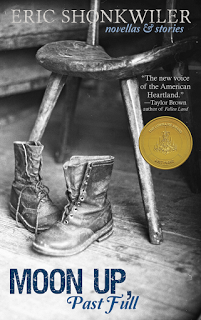
The Suicide of Claire Bishop by Carmiel Banasky

F250 by Bud Smith
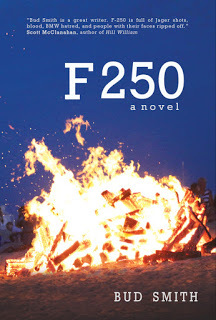
Bull Mountain by Brian Panowich
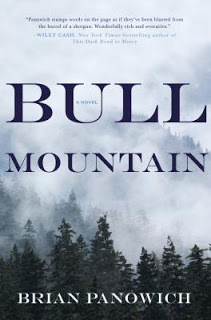
I am Barbarella by Beth Gilstrap
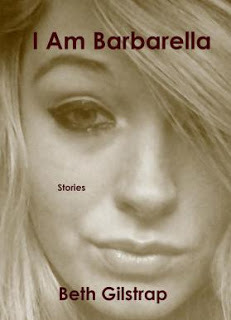
New Yorked by Rob Hart
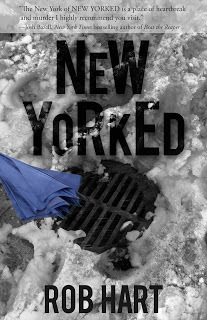
Valpariso, Round the Horn by Madeline ffitch
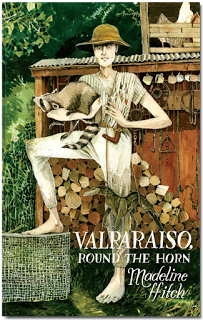
If I Knew the Way, I'd Take You Home by Dave Housley
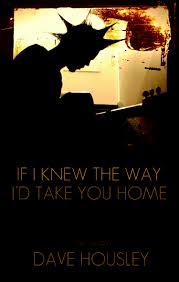
Where All Light Tends to Go by David Joy
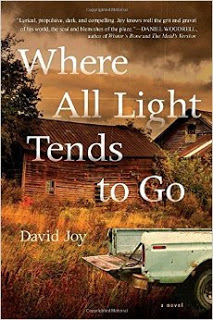
Rift by Kathy Fish and Robert Vaughan
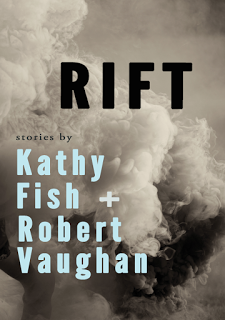
Released a Little While Back (but read and adored this year):
A Constellation of Vital Phenomena by Anthony Marra
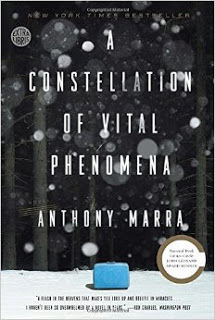
The Fall by Simon Mawer
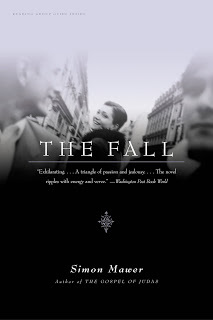
Station Eleven by Emily St. John Mandel
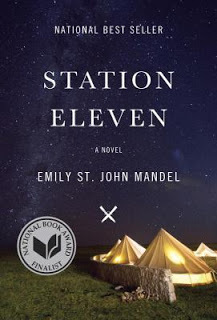
Dead Wake by Eric Larson
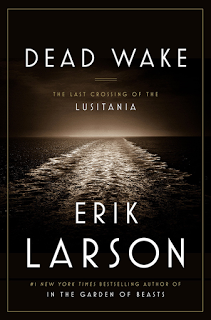
All the Birds Singing by Evie Wyld
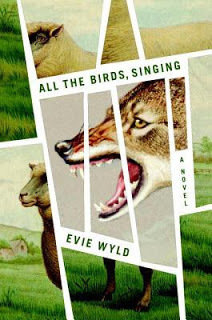
The Hollow Ground by Natalie Harnett
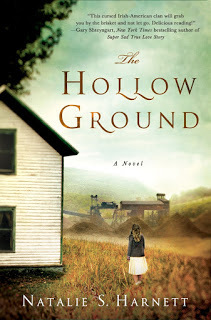
Bonus! Books I Am Dying to Get My Hands on in 2016:
Fallen Land by Taylor Brown
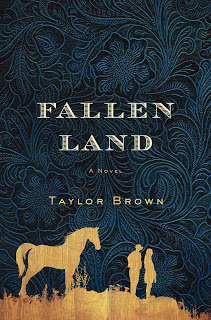
God in Neon by Sam Slaughter
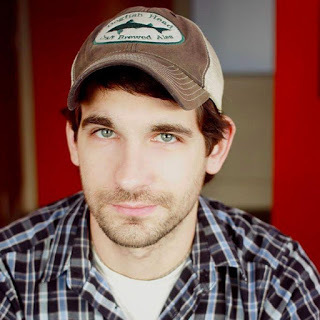 (cover forthcoming- this is Sam :) I hope you find some books you like here. (And feel free to share books that should be added to my TBR list!) As always- read, recommend, review, interview, support.... you know what to do... Happy Reading!
(cover forthcoming- this is Sam :) I hope you find some books you like here. (And feel free to share books that should be added to my TBR list!) As always- read, recommend, review, interview, support.... you know what to do... Happy Reading!
Released in 2015:
Moon Up, Past Full by Eric Shonkwiler

The Suicide of Claire Bishop by Carmiel Banasky

F250 by Bud Smith

Bull Mountain by Brian Panowich

I am Barbarella by Beth Gilstrap

New Yorked by Rob Hart

Valpariso, Round the Horn by Madeline ffitch

If I Knew the Way, I'd Take You Home by Dave Housley

Where All Light Tends to Go by David Joy

Rift by Kathy Fish and Robert Vaughan

Released a Little While Back (but read and adored this year):
A Constellation of Vital Phenomena by Anthony Marra

The Fall by Simon Mawer

Station Eleven by Emily St. John Mandel

Dead Wake by Eric Larson

All the Birds Singing by Evie Wyld

The Hollow Ground by Natalie Harnett

Bonus! Books I Am Dying to Get My Hands on in 2016:
Fallen Land by Taylor Brown

God in Neon by Sam Slaughter
 (cover forthcoming- this is Sam :) I hope you find some books you like here. (And feel free to share books that should be added to my TBR list!) As always- read, recommend, review, interview, support.... you know what to do... Happy Reading!
(cover forthcoming- this is Sam :) I hope you find some books you like here. (And feel free to share books that should be added to my TBR list!) As always- read, recommend, review, interview, support.... you know what to do... Happy Reading!
Published on December 08, 2015 16:08
Ahem... about those updates...
It's been a crazy month, but I promise you I'll have this blog updated one of these days. Reading recaps, awesome news, author interviews (2 on the way!) and my end of the year book list... All coming soon. :)


Published on December 08, 2015 15:00
November 10, 2015
Moon Up, Past Full by Eric Shonkwiler
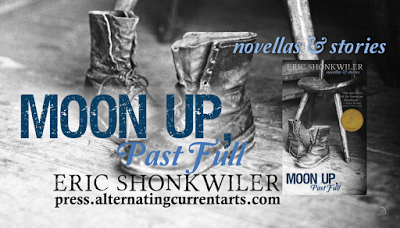
The epigraph for Eric Shonkwiler's recently released Moon Up, Past Full is as follows:
"What lasts is what you start with." -Charles Wright Though there is so much material to consider in Shonkwiler's collection, including two novellas and an array of brilliant short stories, in many ways this quotation sums up Shonkwiler and his prose for me. He is the real deal, a masterful storyteller of the hardscrabble life and its hauntingly beautiful edges, and he has little time for superficiality or artifice. In short, Shonkwiler is genuine and his work is timeless. I first became acquainted with Eric Shonkwiler in reading his debut novel Above All Men. From the very first page, I knew that I had stumbled upon a writer with guts. One who was pushing hard and searching deep and who wasn't afraid to take stylistic risks for the sake of authenticity. I was certain that I had only seen just the beginning from Shonkwiler and Moon Up, Past Full has proven me right.
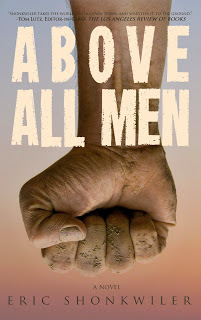 Although Moon Up, Past Full is a collection of novellas and short stories, Shonkwiler in no way appears constrained by the genre. Indeed, it is in his shortest works that Shonkwiler has room to breath. In the smallest spaces, in the most intimate moments, Shonkwiler's concise prose shines bright and allows readers to become fully immersed in the gritty, eclectic characters that roam like restless ghosts across the Midwest landscape.
Although Moon Up, Past Full is a collection of novellas and short stories, Shonkwiler in no way appears constrained by the genre. Indeed, it is in his shortest works that Shonkwiler has room to breath. In the smallest spaces, in the most intimate moments, Shonkwiler's concise prose shines bright and allows readers to become fully immersed in the gritty, eclectic characters that roam like restless ghosts across the Midwest landscape.
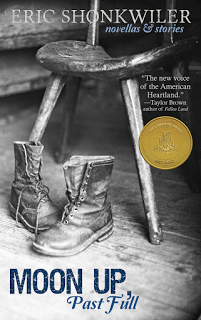 Yet while Moon Up, Past Full was all that I expected it would be, I was still startled, and taken in, by the nostalgia that inhabits these pages. Above All Men contained faint echoes of the past as the characters came to grips with navigating a devastating, near post-apocalyptic present and future, but Moon Up, Past Full is brushed through with hints of a more personal longing for the innocence of days forever gone. One of my favorite images comes from the opening story, "Gripping Heel:" "They were finishing work on the new school just inside the village limits, and dust blew up from the site and faded off across the last acres of wood.Kids played baseball at the bottom of the park;on the hill above, one boy chased another. He thought of how grass felt as a kid. Falling into it, getting stains on his knees.To roll down a hill,to have a child's inertia." It is quiet, simple moments like these that make Shonkwiler's stories for me. His premises are dark, his characters tragic, but the subtle poignancy that sweeps through his work keeps his tales from being too shocking and therefore glossed over or rushed through. There is no way to read Moon Up, Past Full and not find yourself slipping beneath the surface and into the deeper depths.
Yet while Moon Up, Past Full was all that I expected it would be, I was still startled, and taken in, by the nostalgia that inhabits these pages. Above All Men contained faint echoes of the past as the characters came to grips with navigating a devastating, near post-apocalyptic present and future, but Moon Up, Past Full is brushed through with hints of a more personal longing for the innocence of days forever gone. One of my favorite images comes from the opening story, "Gripping Heel:" "They were finishing work on the new school just inside the village limits, and dust blew up from the site and faded off across the last acres of wood.Kids played baseball at the bottom of the park;on the hill above, one boy chased another. He thought of how grass felt as a kid. Falling into it, getting stains on his knees.To roll down a hill,to have a child's inertia." It is quiet, simple moments like these that make Shonkwiler's stories for me. His premises are dark, his characters tragic, but the subtle poignancy that sweeps through his work keeps his tales from being too shocking and therefore glossed over or rushed through. There is no way to read Moon Up, Past Full and not find yourself slipping beneath the surface and into the deeper depths.
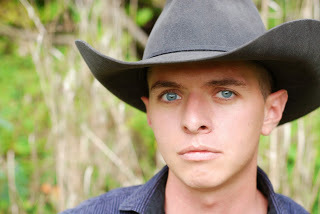
Moon Up, Past Full
is available now and I highly recommend getting the jump on this one. You can order it via Amazon and Barnes and Noble, of course, but also through Alternating Current's website, where you can pick up a signed copy or deluxe package containing some ridiculously cool swag.
Moon Up, Past Full
is available now and I highly recommend getting the jump on this one. You can order it via Amazon and Barnes and Noble, of course, but also through Alternating Current's website, where you can pick up a signed copy or deluxe package containing some ridiculously cool swag.

And don't forget to catch the rest of the book tour for Moon Up, Past Full !

Published on November 10, 2015 01:00
November 3, 2015
Scuppernong Books Reading Event!
If you're anywhere in the Greensboro, NC area next weekend (11/14) be sure to come out to Scuppernong Books at 7:00pm. I'll be reading with rock stars Beth Gilstrap, Aubrie Cox and Jim Warner. It's sure to be a killer time so don't miss out!


Published on November 03, 2015 15:31
October 6, 2015
Closed Door/Open Door Writing
Stephen King, in his classic and indispensable (and the only "writing" book I've ever taken seriously) On Writing talks about doors. Closed doors and open doors. As far as metaphors for the writing process go, I take this one to heart.
Dreaming, planning, outlining, first drafting and so on should be written with the door closed. The metaphorical door, of course, though I often actually close the door. This is the time for not sharing your writing with anyone, for secret writing schemes, for allowing your mind to run wild, experiment, push and test limits and conduct an absolute free for all if you're so inclined. You can write whatever, however, because no one will read it. The door is shut. No readers allowed.
Revisions and edits should be written with the door open. Either just a crack (as I often do- I am notoriously cagey about my work until published) or wide ass open, letting all the sunlight in. This is when a shift occurs- from writing for yourself to writing for readers. The responsibility of being true to yourself, while always necessary, is augmented by the responsibility to the readers who will go forth and buy and support your book. So this is the time when you, sometimes wincing, sometimes trembling, allow your drafts to be read, commented on and picked apart by someone other than yourself.
Turning the knob to open the door can be daunting. A novel takes a long time to write and as a result, you can spend quite a bit of time with the door shut, locked and barricaded. You are ALONE for a very long time with your characters and your thoughts and your plot and your ideas and the world you've created that might, at times, seem even more real than the one you supposedly live in. You've sacrificed a lot to spend all that time writing with the door closed. Your grip on reality maybe, but also your reader compass. You have no idea if what you're doing is even good, or marginally okay, or at least not the worst thing ever written. On top of that, you've cancelled plans, stopped returning phone calls, alienated your friends and missed out on parties, events, having fun and doing 'normal' activities in general. But you've gotten used to this. It's a nice, comfortable darkness.
And then the day comes when it's time to open the door and the light comes streaming in and blinds you.
This day is different for every writer, every novel, and occurs in myriad ways, I'm sure. Some writers may wait until the final, final draft before letting anyone have a glimpse. Some may have a writing group or a circle of readers. Some may open and shut the door after every chapter, though I personally would find all that door slamming distracting.
For me, the door opens in a slow, gradual process. This go round, I pulled out the nails and lifted the boards and turned the knob after draft 1.5. (yes, I have multiples of drafts... I'm weird) As always, I opened the door wide enough only to let one reader in. The Reader.
I think most writers have a Reader. King talks about this as well and cites his wife Tabitha as his Reader. This is the person you write for, whose voice is often lurking around your ear as you write, ready to call you out. This might be your agent, your professor, your mom, your friend on the other side of the world. For me, as with King, and as with a lot of writers I suspect, my Reader is also the person closest to me in the 'real world.'
Consequently, this past weekend, I handed over the draft of this novel to my husband Ryan and charged him with reading it. I feel beyond lucky to have a Reader who is NOT a writer and therefor can take the story as what it is: a story. I'm also lucky (though it might not always feel like it when I'm in whiny author-breakdown mode) that my Reader runs into burning buildings and saves lives for a living. He's tough. He will tell it to me straight. He will tell me to suck it up and write the damn book because he knows I can. There is no sugar coating on his feedback, let me tell you, and therefore it's honest and worth more than gold.
He's still in the process of reading, but so far the verdict is looking good. Very good. And spurred on by what I'm hearing, I'm more fired up than ever about this novel. Yes, the road ahead is paved with work. Lots of work. Layers and layers of revisions and edits still to go. I'll let a few more readers in with each draft, opening the door wider at each stage, until I finally feel ready to send this baby out into the world.
And right afterwards, I'll be slamming the door closed behind me and hunkering down for the next one, because this is what writers do....
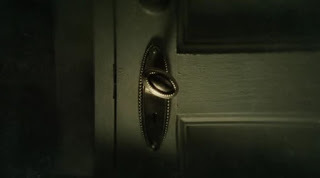
Dreaming, planning, outlining, first drafting and so on should be written with the door closed. The metaphorical door, of course, though I often actually close the door. This is the time for not sharing your writing with anyone, for secret writing schemes, for allowing your mind to run wild, experiment, push and test limits and conduct an absolute free for all if you're so inclined. You can write whatever, however, because no one will read it. The door is shut. No readers allowed.
Revisions and edits should be written with the door open. Either just a crack (as I often do- I am notoriously cagey about my work until published) or wide ass open, letting all the sunlight in. This is when a shift occurs- from writing for yourself to writing for readers. The responsibility of being true to yourself, while always necessary, is augmented by the responsibility to the readers who will go forth and buy and support your book. So this is the time when you, sometimes wincing, sometimes trembling, allow your drafts to be read, commented on and picked apart by someone other than yourself.
Turning the knob to open the door can be daunting. A novel takes a long time to write and as a result, you can spend quite a bit of time with the door shut, locked and barricaded. You are ALONE for a very long time with your characters and your thoughts and your plot and your ideas and the world you've created that might, at times, seem even more real than the one you supposedly live in. You've sacrificed a lot to spend all that time writing with the door closed. Your grip on reality maybe, but also your reader compass. You have no idea if what you're doing is even good, or marginally okay, or at least not the worst thing ever written. On top of that, you've cancelled plans, stopped returning phone calls, alienated your friends and missed out on parties, events, having fun and doing 'normal' activities in general. But you've gotten used to this. It's a nice, comfortable darkness.
And then the day comes when it's time to open the door and the light comes streaming in and blinds you.
This day is different for every writer, every novel, and occurs in myriad ways, I'm sure. Some writers may wait until the final, final draft before letting anyone have a glimpse. Some may have a writing group or a circle of readers. Some may open and shut the door after every chapter, though I personally would find all that door slamming distracting.
For me, the door opens in a slow, gradual process. This go round, I pulled out the nails and lifted the boards and turned the knob after draft 1.5. (yes, I have multiples of drafts... I'm weird) As always, I opened the door wide enough only to let one reader in. The Reader.
I think most writers have a Reader. King talks about this as well and cites his wife Tabitha as his Reader. This is the person you write for, whose voice is often lurking around your ear as you write, ready to call you out. This might be your agent, your professor, your mom, your friend on the other side of the world. For me, as with King, and as with a lot of writers I suspect, my Reader is also the person closest to me in the 'real world.'
Consequently, this past weekend, I handed over the draft of this novel to my husband Ryan and charged him with reading it. I feel beyond lucky to have a Reader who is NOT a writer and therefor can take the story as what it is: a story. I'm also lucky (though it might not always feel like it when I'm in whiny author-breakdown mode) that my Reader runs into burning buildings and saves lives for a living. He's tough. He will tell it to me straight. He will tell me to suck it up and write the damn book because he knows I can. There is no sugar coating on his feedback, let me tell you, and therefore it's honest and worth more than gold.
He's still in the process of reading, but so far the verdict is looking good. Very good. And spurred on by what I'm hearing, I'm more fired up than ever about this novel. Yes, the road ahead is paved with work. Lots of work. Layers and layers of revisions and edits still to go. I'll let a few more readers in with each draft, opening the door wider at each stage, until I finally feel ready to send this baby out into the world.
And right afterwards, I'll be slamming the door closed behind me and hunkering down for the next one, because this is what writers do....

Published on October 06, 2015 13:55
October 5, 2015
Nonbinary Review takes a look at A Tree Born Crooked
Many thanks to Julia Smillie for this review of A Tree Born Crooked up at Rhizomatic Ideas on Nonbinary Review (Zoetic Press). Have a look and then be sure to check out Nonbinary Review while you're at it. There's some amazing literature happening out that way....


Published on October 05, 2015 16:51
September 30, 2015
Steph Post's New Author Survival Guide!
Today marks the one year anniversary of the release of A Tree Born Crooked. The past year has been a roller coaster of a ride, with fortunately more highs and lows, and the learning curve has been steep. In honor of my first book's first birthday, I'm offering a gift of sorts: Steph Post's New Author Survival Guide! (Also known as a list of things that have kept me off the ledge during this crazy, hectic, exciting, tumultuous and altogether amazing experience). If you're a recent or soon-to-be debut author, I'm here to give you my humble observations and tips. These are also things that I hope to remember and apply for the rest of my writing career... So, here we go:
Steph's Survival Guide!
-Make friends and allies with fellow debut authors. They will listen to you and commiserate with you. They will understand what you're going through.
-Keep your friends close who are NOT authors or writers of any kind. They will listen to you, at first, and they will most likely not understand at all what you are going through. This is good. These friends are essential, as they will not let you whine about all the whiney author things you are going to want to whine about constantly. They will keep you grounded, because they don't just don't have time for that. They will remind you that there is more to life than Amazon rankings and Goodreads reviews.
-Don't become overwhelmed by everything happening in the literary world that you will be bombarded by on social media. Yes, all of your author friends are having readings and going to book festivals and winning awards and making lists and looking super cool ALL THE TIME. Don't let jealousy or, God forbid, self-pity consume you. Keeping those not-author-friends by your side will definitely help with this.
-Promote and support other authors as much or more than you do yourself and your own work. Yes, your book is awesome and you want the world to know. There are also a ton of other awesome authors out there and they need the world to know about them too. This is also the best way to gain support from your fellow authors and to make connections. Plus, it's kind. And being kind is badass.
-Don't be selfish.
-Remember that you are not fighting against your fellow authors for sales, attention or what have you. It's not author vs. author. It's authors vs. the world. However you look at it, we need each other.
-Keep in mind that unless you are J.D. Salinger, there are many more books to come for you. All of your hopes and dreams of success do not rest on your first book. Don't put that kind of pressure on yourself. You'll have enough going on to stress you out.
-Be considerate of absolutely everyone who supports you. People who are willing to interview you, review your book, re-tweet your promotions, like your incessant Facebook updates and write you personal emails are incredible people. Readers are everything. Always make time for them. Always express your gratitude.
-Read. There is no excuse for a writer not to read. And review. How can you possibility expect people to read and review YOUR book if you are not doing the same?
-Have fun with the publishing experience and remember that it is not just something that you "have to deal with." No one forced you to publish your book. You most likely spent months, years, who knows how long, trying to get your book published. You've now gotten what you wanted. Enjoy it. And don't take it for granted.
-Work hard. It's not going to be easy. It shouldn't be.
-Most importantly, WRITE. Write, write, keep writing. Sure, you're probably not going to get much done the first few months after your book releases. If anything, you will be too busy, too excited and too exhausted to even think about working on another book. But you have to eventually. You probably didn't become an author just because you wanted to be published. You became an author because you HAD to write, just as you have to breathe, and then you eventually decided to do something with all that writing. Salinger maybe only had the one novel published, but he never stopped writing. And really, at the end of the day, continuing to write will keep you even more sane than your non-writer friends will.
-And also, keep a puppy nearby. Trust me on this one.

Steph's Survival Guide!
-Make friends and allies with fellow debut authors. They will listen to you and commiserate with you. They will understand what you're going through.
-Keep your friends close who are NOT authors or writers of any kind. They will listen to you, at first, and they will most likely not understand at all what you are going through. This is good. These friends are essential, as they will not let you whine about all the whiney author things you are going to want to whine about constantly. They will keep you grounded, because they don't just don't have time for that. They will remind you that there is more to life than Amazon rankings and Goodreads reviews.
-Don't become overwhelmed by everything happening in the literary world that you will be bombarded by on social media. Yes, all of your author friends are having readings and going to book festivals and winning awards and making lists and looking super cool ALL THE TIME. Don't let jealousy or, God forbid, self-pity consume you. Keeping those not-author-friends by your side will definitely help with this.
-Promote and support other authors as much or more than you do yourself and your own work. Yes, your book is awesome and you want the world to know. There are also a ton of other awesome authors out there and they need the world to know about them too. This is also the best way to gain support from your fellow authors and to make connections. Plus, it's kind. And being kind is badass.
-Don't be selfish.
-Remember that you are not fighting against your fellow authors for sales, attention or what have you. It's not author vs. author. It's authors vs. the world. However you look at it, we need each other.
-Keep in mind that unless you are J.D. Salinger, there are many more books to come for you. All of your hopes and dreams of success do not rest on your first book. Don't put that kind of pressure on yourself. You'll have enough going on to stress you out.
-Be considerate of absolutely everyone who supports you. People who are willing to interview you, review your book, re-tweet your promotions, like your incessant Facebook updates and write you personal emails are incredible people. Readers are everything. Always make time for them. Always express your gratitude.
-Read. There is no excuse for a writer not to read. And review. How can you possibility expect people to read and review YOUR book if you are not doing the same?
-Have fun with the publishing experience and remember that it is not just something that you "have to deal with." No one forced you to publish your book. You most likely spent months, years, who knows how long, trying to get your book published. You've now gotten what you wanted. Enjoy it. And don't take it for granted.
-Work hard. It's not going to be easy. It shouldn't be.
-Most importantly, WRITE. Write, write, keep writing. Sure, you're probably not going to get much done the first few months after your book releases. If anything, you will be too busy, too excited and too exhausted to even think about working on another book. But you have to eventually. You probably didn't become an author just because you wanted to be published. You became an author because you HAD to write, just as you have to breathe, and then you eventually decided to do something with all that writing. Salinger maybe only had the one novel published, but he never stopped writing. And really, at the end of the day, continuing to write will keep you even more sane than your non-writer friends will.
-And also, keep a puppy nearby. Trust me on this one.

Published on September 30, 2015 14:48



